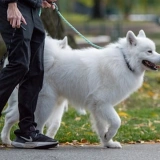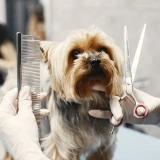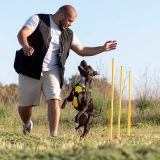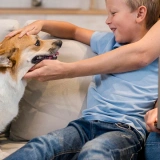The Pomeranian, often called the "Pom", is a toy breed that originated from larger Arctic sled dogs, bred down in size in Pomerania (now parts of Poland and Germany). Despite its small stature, the Pomeranian has retained a big-dog attitude — confident, energetic, and always alert.
Known for its plush double coat, fox-like face, and spunky demeanor, the Pom is a popular companion dog with a natural curiosity and love for attention. They’re bright, trainable, and make excellent watchdogs due to their alertness.
Pomeranians thrive on human interaction and love being the center of attention. While they do well in apartments, they require regular mental stimulation and gentle leadership to prevent excessive barking or bossy behavior.







